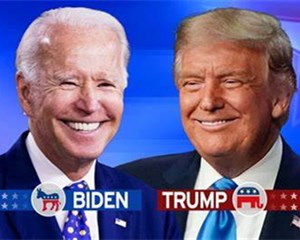The endless chatter in Washington about "political strategy," Podhorzer believes, has little to do with how change really gets made. "My basic take on politics is that it's all pretty obvious if you don't overthink it or swallow the prevailing frameworks whole," he once wrote. "After that, just relentlessly identify your assumptions and challenge them." Podhorzer applies that approach to everything: when he coached his now adult son's Little League team in the D.C. suburbs, he trained the boys not to swing at most pitches—a tactic that infuriated both their and their opponents' parents, but won the team a series of championships.
波德霍澤認為,華盛頓關于“政治戰略”的無休止的討論,與如何真正實現變革沒有多大關系。他曾經寫道:“我對政治的基本看法是,如果你不過度思考,或者不全盤接受流行的框架,一切都是顯而易見的。”“然后,你要毫不留情地找出你的假設并挑戰它們。”波德霍澤把這種方法應用到所有的事情上:當他在華盛頓郊區指導他現在已經成年的兒子的少年棒球聯盟球隊時,他訓練孩子們在大多數投球時不要揮棒——這一策略激怒了他們和對手的父母,但卻為球隊贏得了一次又一次的冠軍。

Trump's election in 2016—credited in part to his unusual strength among the sort of blue collar white voters who once dominated the AFL-CIO—prompted Podhorzer to question his assumptions about voter behavior. He began circulating weekly number-crunching memos to a small circle of allies and hosting strategy sessions in D.C. But when he began to worry about the election itself, he didn't want to seem paranoid. It was only after months of research that he introduced his concerns in his newsletter in October 2019. The usual tools of data, analytics and polling would not be sufficient in a situation where the President himself was trying to disrupt the election, he wrote. "Most of our planning takes us through Election Day," he noted. "But, we are not prepared for the two most likely outcomes"—Trump losing and refusing to concede, and Trump winning the Electoral College (despite losing the popular vote) by corrupting the voting process in key states. "We desperately need to systematically 'red-team' this election so that we can anticipate and plan for the worst we know will be coming our way."
特朗普在2016年的當選——部分歸功于他在曾經主宰美國勞工聯合會的藍領白人選民中有著異乎尋常的力量——促使波德霍澤質疑他對選民行為的假設。他開始每周向一小群盟友分發數據分析備忘錄,并在華盛頓召開戰略會議。但當他開始擔心選舉本身時,他不想顯得偏執。直到幾個月的研究后,他才在2019年10月的通訊中提出了自己的擔憂。他寫道,在總統自己試圖擾亂選舉的情況下,通常的數據、分析和民調工具是不夠的。他說:“我們的大部分計劃要持續到大選日。但是,我們還沒有為兩種最可能的結果做好準備”——特朗普輸掉并拒絕認輸,以及特朗普通過在關鍵州破壞投票過程而贏得選舉人團(盡管輸掉了普選)。“我們迫切需要有系統地‘紅隊’這次選舉,這樣我們就可以預測和計劃我們知道將會出現的最壞情況。”
It turned out Podhorzer wasn't the only one thinking in these terms. He began to hear from others eager to join forces. The Fight Back Table, a coalition of "resistance" organizations, had begun scenario-planning around the potential for a contested election, gathering liberal activists at the local and national level into what they called the Democracy Defense Coalition. Voting-rights and civilrights organizations were raising alarms. A group of former elected officials was researching emergency powers they feared Trump might exploit. Protect Democracy was assembling a bipartisan election-crisis task force. "It turned out that once you said it out loud, people agreed," Podhorzer says, "and it started building momentum."
事實證明,波德霍澤并不是唯一一個這樣想的人。他開始聽到其他人渴望聯合起來。一個由“抵抗”組織組成的聯盟“反擊臺”已經開始圍繞有爭議的選舉進行前景計劃,將地方和國家層面的自由活動人士聚集到他們所謂的“民主防衛聯盟”中。投票權和民權組織敲響了警鐘。一群前當選官員正在研究他們擔心特朗普可能會利用的緊急權力。保護民主正在組建一個兩黨選舉危機特別工作組。“事實證明,一旦你大聲說出自己的想法,人們就會同意,”波德霍澤說,“并且開始形成勢頭。”
譯文由可可原創,僅供學習交流使用,未經許可請勿轉載。











